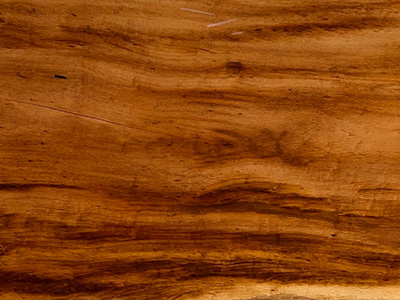| 10/4 |
| (2 ½") |
| 2 slabs |
Selection of Tigerwood live edge slabs, also known as Goncalo alves, jobillo, muiracatiara
Origin of Tigerwood:
Tigerwood is commonly referred to as Goncalo alves or Brazilian tigerwood among flooring dealers. The wood has superb stiffness, strength, hardness, and durability. However, density and other mechanical properties can vary widely depending on the growing site and source region. The name jobillo is sometimes used locally or among woodturners to refer to higher grades of Tigerwood.
Tigerwood is generally not too difficult to work, despite its high density. Figured pieces with irregular grain can pose a challenge in planing and machining operations. Tigerwood can also have a moderate blunting effect on cutters. The wood is very resistant to moisture absorption, which can make it difficult to glue. Tigerwood turns and finishes well.
Common Uses:
Flooring, veneers, furniture, cabinetry, carving, turned objects, and other small wood specialty objects such as: pool cues, archery bows, knife handles, etc.
Color of Tigerwood:
Heartwood is typically a medium reddish brown with irregularly spaced streaks of dark brown to black. Color tends to darken with age. Some pieces of goncalo alves may be completely uniform in color with no streaks or stripes.
Janka Hardness:
2,170
Decay and Weather Resistance:
Tigerwood has excellent weathering properties, and is rated as very durable regarding decay resistance.

Close up photo to show grain of a Tigerwood slab
